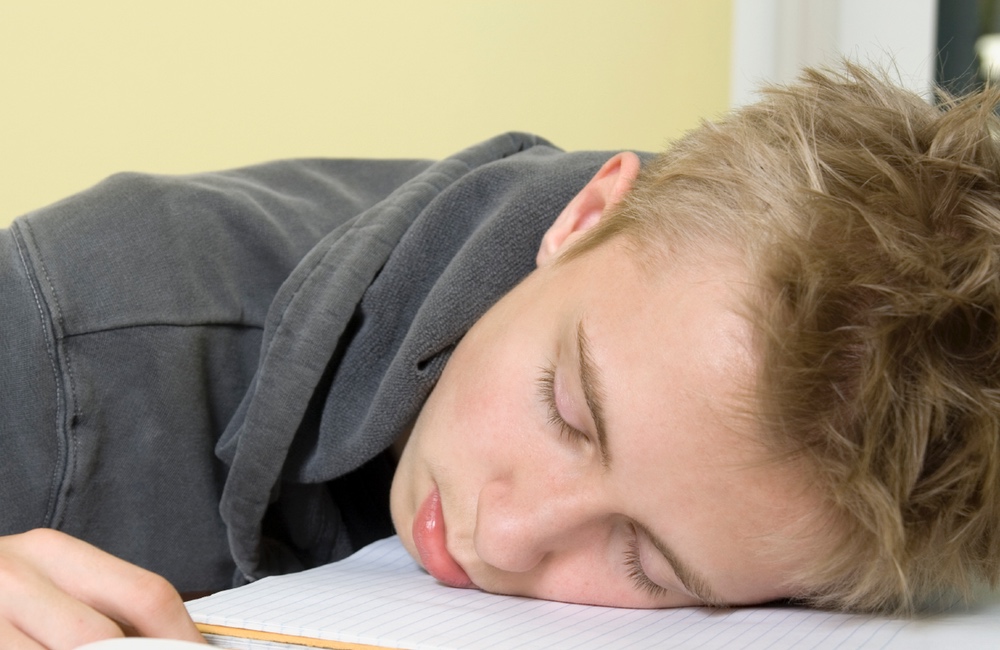During adolescence kids often start going to bed later and sleeping less, staying up late to do schoolwork and spend time on social media. This does not do good things for their developing brains. New research from the University of Cambridge in the U.K. and Fudan University in China found that even adolescents who slept the most only clock about seven and a half hours a night, less than the nine to 12 hours recommended by the American Academy of Sleep Medicine.
It's a case of the more sleep, the better, Barbara Sahakian a coauthor on the study, explained. Adolescents who go to sleep earlier and sleep for longer periods than their peers have better brain function and perform better on cognitive tests.Teens who slept the least — a little over seven hours a night — had the smallest brain volumes and poorest brain function.
Researchers know a lot about sleep during adulthood, but little about sleep during this important period of adolescent development, said Sahakian, asking in a statement, “How long do young people sleep, for example, and how does this affect their brain function and cognitive performance?”
Previous studies had relied on adolescents' self-reported sleep habits, which can be inaccurate. Kids in the ABCD study were given FitBits so the researchers could collect data on their sleep habits and compare it to brain scans and the results of cognitive tests to measure parameters such as vocabulary, reading, problem solving skills and focus. The findings were checked against data from two additional groups of about 1,200 13- and 14-year olds.
The researchers found that participants could be divided into three groups:
Group One, which included about 39 percent of participants, slept an average of seven hours, 10 minutes a night. Compared to the participants in the other two groups, they had the worst sleep performance, characterized by the shortest duration of sleep, latest bedtime and sleep onset time, earliest wake-up time and the highest heart rate during sleep.
Group Two, which included about 24 percent of participants, slept an average of seven hours, 21 minutes. Students in this group had average levels of all sleep parameters.Kids wore FitBits so the researchers could collect data on their sleep habits and compare it to brain scans and the results of cognitive tests.
Group Three, comprised of about 37 percent of participants, slept an average of seven hours, 25 minutes. The students had the best sleep performance of all three groups, with the longest duration of sleep, earliest bedtime and sleep onset time and the lowest heart rate during sleep.
The differences in the amount of sleep each group got were small, but the differences in how each group performed on tests of cognitive function and the differences in brain volume and function across each group were still evident.
More sleep resulted in better cognitive performance.
Group Three out-performed Group Two, who in turn outperformed Group One, on cognitive tests. Group Three also had the largest brain volume and the best brain function compared to the other groups. Group One had the smallest brain volume and poorest brain function.
Though these differences in sleep duration seem small, their impact over time was large. The ABCD study had followed the preteens over time and was able to show these differences in sleep patterns, brain functions, and cognitive functioning were present two years before and two years afterward.
“This drives home how important it is to get a good night's sleep at this important time of life,” said Sahakian, a professor of psychiatry at the University of Cambridge.
For better sleep, preteens should:
- Turn off tablets and smartphones 30 to 60 minutes before bed.
- Develop a relaxing bedtime routine, such as reading, journaling or taking a warm shower or bath.
- Create a cool, calm environment for sleep.
The study is published in Cell Reports.





